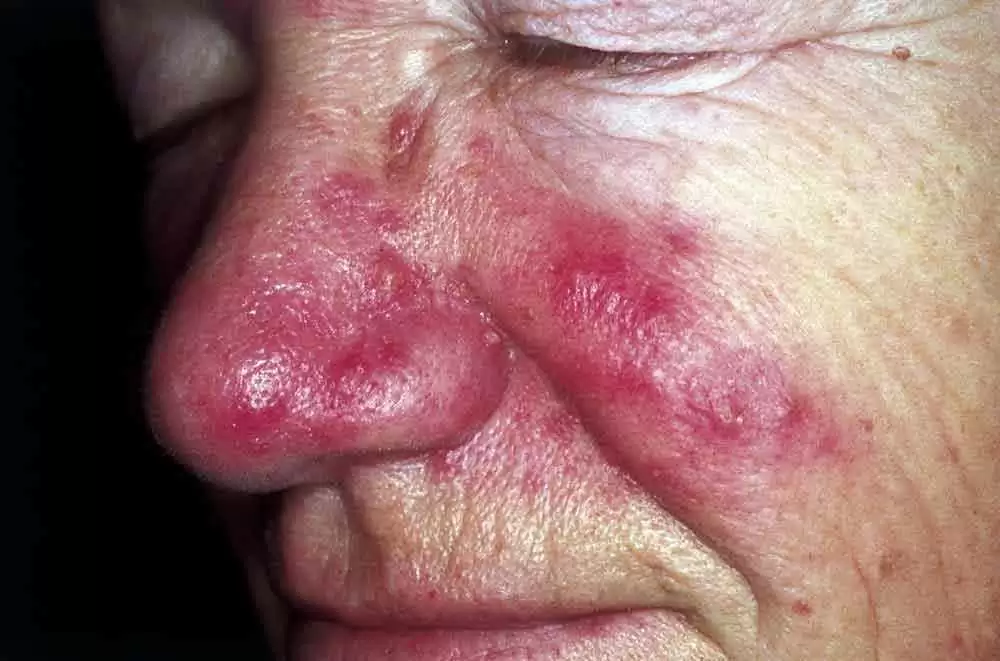
Celiac.com 04/30/2018 - Rosacea is one of the most common skin diseases, and usually manifests as chronic inflammation of the eyes and the central part of the face. Rosacea is medically harmless, but it can trigger strong self-consciousness and reduce people’s overall enjoyment of life. For most people, symptoms of rosacea include flushing and erythrosis or reddening of the face. A small percentage of patients also get the formation of papules and pustules, with phymata.
Doctors have posited numerous possible triggers, including hypochlorhydria, dysmotility, anatomic anomalies of the intestine, and immunologic causes. SIBO is an acronym for small intestinal bacterial overgrowth, a medical condition marked by an abnormally high concentration of bacteria in the jejunal aspirate on culture.
Celiac.com Sponsor (A12):
SIBO is more common in people with rosacea than it is in the general population, and when SIBO is treated with antibiotics, skin lesions vanish in nearly 100% of cases. This remission lasts for at least 9 months in about 80% of patients.
The same thing happened when unresponsive SIBO patients receiving placebo as part of a study were switched to antibiotics, so the evidence is very strong. It’s well known that numerous patients with rosacea have stomach and gut complaints, including dyspepsia, bloating, flatulence, abdominal pain of a cramping nature, altered bowel habits such as alternating constipation and diarrhea, and meteorism.
It’s also not uncommon for rosacea patients have to suffer from medical conditions such as ulcerative colitis, Crohn’s disease, celiac disease, gastritis due to H. pylori overgrowth, lipase deficiencies, hypochlorhydria, and diseases affecting the small intestinal mucosa. Rosacea patients show a good response to a variety of antibiotics, including tetracycline or macrolide drugs, metronidazole, or chloramphenicol.
The overwhelmingly positive response to antibiotics, coupled with the fact that many rosacea patients see symptom improvement when treated with drugs that speed intestinal movement, lends support to the idea that skin lesions have a bacterial origin. Still, evidence of bacterial role in rosacea has been far from clear. Some researchers suspect that rosacea lesions result from increased intestinal permeability in patients with SIBO, which in turn might lead to translocation or pro-inflammatory cytokine release.
Earlier studies have linked rosacea with certain genetic variants in the genomes of rosacea sufferers that were strongly associated with the disorder, including genetic variants in or near the HLA-DRA and BTNL2 genes.
Interestingly, these areas of the genome are also associated with autoimmune disease, including type I diabetes and celiac disease.
Read more about rosacea and SIBO at News-medical.net, and at Rosacea.org.



Recommended Comments
Create an account or sign in to comment
You need to be a member in order to leave a comment
Create an account
Sign up for a new account in our community. It's easy!
Register a new accountSign in
Already have an account? Sign in here.
Sign In Now